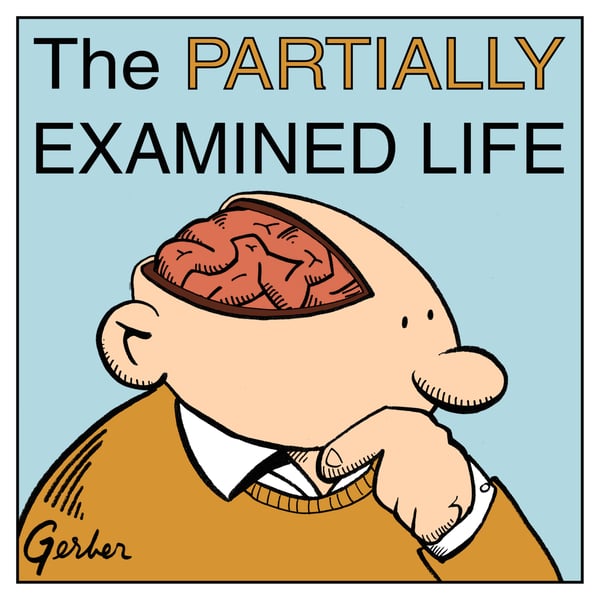Ep. 329: Kierkegaard on Irony (Part One)
The Partially Examined Life Philosophy Podcast
Mark Linsenmayer
4.6 • 2.3K Ratings
🗓️ 13 November 2023
⏱️ 45 minutes
🧾️ Download transcript
Summary
Discussing On the Concept of Irony (1841).
Kierkegaard builds up to telling us what irony is by showing how Socrates invented irony, as characterized by his wholly negative project of showing others that their beliefs inherited from society are wrong.
Get more at partiallyexaminedlife.com. Visit partiallyexaminedlife.com/support to get ad-free episodes and tons of bonus discussion.
Sponsors: Get $250 off the #1 meal kit for eating well at GreenChef.com/pel250 (code pel250). Start selling online with a $1/month trial period at shopify.com/pel. Have your donation matched up to $100 to a top-performing charity at GiveWell.org (enter "The Partially Examined Life Philosophy Podcast" at checkout).
Transcript
Click on a timestamp to play from that location
| 0:00.0 | Today's episode of the partial examined life is sponsored by GiveWell. |
| 0:03.7 | Maximize the power of your charitable contributions at give well. |
| 0:08.1 | Oh my, Shopify. |
| 0:10.3 | Sell online today. |
| 0:13.0 | You're listening to the partially examined life a podcast by some guys who at one point |
| 0:24.4 | set on doing philosophy for a living but then thought better of it. |
| 0:27.8 | Our question for episode 329 is what is irony and we read big chunks of Sin Kirkgaard's master's thesis on the concept of irony from 1841. |
| 0:36.5 | For more information about this book and the podcast please see partial examine life.com. My name is Mark Linton Meyer, permitting the established to remain, but with no validity in Madison, Wisconsin. |
| 0:47.0 | This is Seth Paskin in Austin, Texas, beginning with the presupposition that I know nothing at all, which in turn leads to the presupposition that human that |
| 0:55.0 | human beings know nothing at all. |
| 0:56.0 | This is Dylan Casey learning how to actualize actuality |
| 1:00.0 | in Madison, Wisconsin. |
| 1:02.0 | The full title of this book, The Concept of Irony, with continual reference to Socrates. |
| 1:07.0 | And the whole first half of the book is about Socrates. |
| 1:11.0 | So originally, we don't need to read secondary literature. Let's just jump to the second half where he actually says what irony is. |
| 1:16.5 | But the second half, though he does, you know, say some things directly about irony, is also a bunch of secondary literature who's talking about the |
| 1:23.4 | romantics including shlegel that we have read recently but not a thing you know |
| 1:29.6 | that is shalegal's famous novel that we did not read and some other folks that we didn't even |
| 1:34.6 | know who they are. So we were sort of just picking and choosing. So it's big chunks of |
| 1:38.4 | part two, but then thanks to Seth accidentally reading part one, we just all read some of that as well and |
| 1:44.4 | what he had to say about Socrates was pretty cool because it's sort of there are lots of |
| 1:48.3 | uses of irony he wants to talk about the historical progression of irony he's very much reacting in the wake of Hegel here in Hegel's philosophy of history and the history of philosophy and so talking about not just here's just the definition of irony, it's here's how irony has been used and he thinks Socrates is a |
... |
Please login to see the full transcript.
Disclaimer: The podcast and artwork embedded on this page are from Mark Linsenmayer, and are the property of its owner and not affiliated with or endorsed by Tapesearch.
Generated transcripts are the property of Mark Linsenmayer and are distributed freely under the Fair Use doctrine. Transcripts generated by Tapesearch are not guaranteed to be accurate.
Copyright © Tapesearch 2025.

